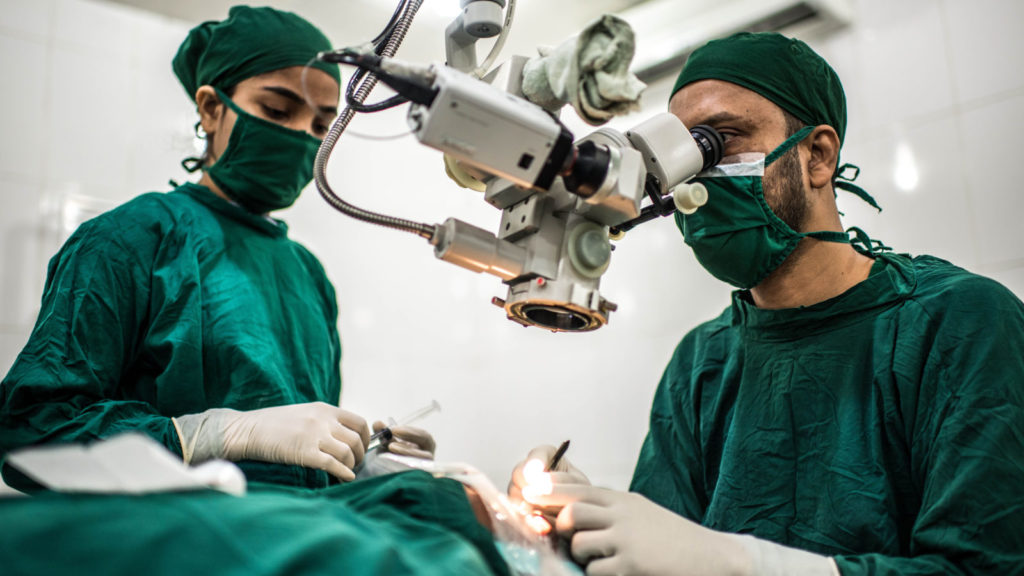Cataract surgery
It is estimated that 20 million people around the world are blind because of cataracts, but in many cases their sight can be restored with a straightforward operation.

Preparing for surgery
After having their eyes screened for cataracts at an outreach camp or local centre, patients who have been referred arrive at the hospital or eye clinic on the day of their operation and are prepared for surgery by the nurses.
Usually one person will be prepared while another patient is being operated on. This enables the surgeon to start a new operation as soon as the first is finished, maximising the number of patients that can be treated each day.
Before patients enter the operating room, they are dressed in a sterile gown and head cover. Just before surgery, the area around their eye is thoroughly cleaned with an antibacterial solution, and a sterile drape is placed over the skin. A drop of antibacterial solution is also applied to their eye to clean the conjunctiva (the membrane that covers the front of the eye).
Treating a family for cataracts

Replacing the clouded lens
Before their surgery, adult patients are given a local anaesthetic and are conscious throughout the procedure, which takes as little as 20 minutes. Operations for children usually require a general anaesthetic and therefore take a little longer. During the operation, a tiny cut is made in the eye to remove the cloudy lens and replace it with a clear artificial one.
If a patient has cataracts in both eyes, they will need to have two separate operations. These are usually performed at least two weeks apart to give the first eye time to heal.
Inside the operating theatre

Recovery after cataract surgery
After the operation, a pad and plastic shield is placed over the eye to protect it for a day or so. Because adult patients only need a local anaesthetic, they can usually go home on the same day, while children are often kept in overnight to make sure they are fully recovered.
Cataract surgery has a high success rate and patients are able to return to their everyday activities quickly. Sometimes vision can start to return within a few hours of surgery. Watch the reaction of 14-year-old Rose after her operation.
Restoring sight



